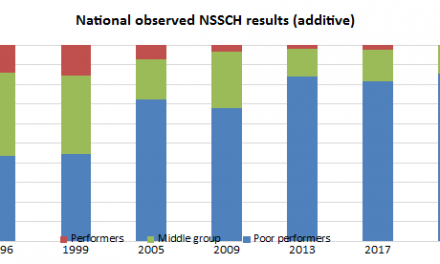
Tech for good: How companies and foundations can use technology to create positive social change

By Mignon du Preez
Old Mutual Group Marketing, Public Affairs, and Sustainability Executive.
Corporate social responsibility (CSR) has become an increasingly important consideration for companies and foundations seeking to make a positive social impact. With advances in technology, there are more opportunities than ever before to leverage technology to create positive social change. However, there are also risks and challenges associated with the use of technology for CSR.
In this article, I will explore the opportunities and challenges of using technology in CSR and provide best practices for the responsible and ethical use of technology.
Opportunities for Technology in CSR
Technology offers a wealth of opportunities for CSR initiatives. For example, companies and foundations can leverage technology to scale their impact, improve efficiency, and enhance effectiveness. One example is the use of machine learning and artificial intelligence (AI) to analyse large data sets and identify patterns and trends that can inform targeted interventions and policy recommendations.
In addition to improving efficiency and effectiveness, technology can also enhance the inclusivity and accessibility of CSR initiatives. For example, digital platforms and tools can make it easier for marginalized communities to participate in decision-making and advocacy efforts. Technology can also help to bridge the digital divide and improve access to education, healthcare, and other essential services.
Challenges of Technology in CSR
Despite the many opportunities presented by technology for CSR, there are also challenges and risks associated with its use. One of the primary challenges is ensuring that technology-driven CSR initiatives are designed and implemented ethically and responsibly. This means taking into account issues such as data privacy and security, algorithmic bias, and unintended consequences of technology.
Another challenge is ensuring that technology-driven CSR initiatives do not exacerbate existing social inequalities. For example, initiatives that rely heavily on digital platforms and tools may unintentionally exclude marginalized communities that do not have access to these technologies. Additionally, technology-driven initiatives may inadvertently reinforce biases and stereotypes if they are not designed with diversity and inclusion in mind.
Best Practices for Leveraging Technology in CSR
1. To ensure that technology-driven CSR initiatives are designed and implemented responsibly and ethically, it is important to follow best practices that prioritize inclusivity, diversity, and community engagement. Some best practices for leveraging technology in CSR include:
2. Conduct regular impact assessments to identify potential risks and unintended consequences of technology-driven initiatives.
3. Engaging in ongoing dialogue with stakeholders to ensure that initiatives are responsive to community needs and priorities.
4. Co-creating initiatives with community members and other stakeholders to ensure that they are designed with diversity and inclusion in mind.
5. Prioritizing data privacy and security by implementing robust data protection policies and practices
Incorporating algorithmic fairness and transparency into technology-driven initiatives to mitigate the risk of bias and discrimination
In conclusion, technology offers a wealth of opportunities for companies and foundations seeking to create positive social impact through CSR initiatives. However, it is important to approach the use of technology in CSR with caution and care, considering the potential risks and challenges. By following best practices for the ethical and responsible use of technology, companies, and foundations can leverage the power of technology to create more inclusive, equitable, and sustainable communities. The future of CSR is bright, and technology will undoubtedly play a critical role in shaping the impact of CSR initiatives for years to come.













































